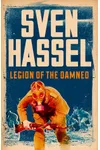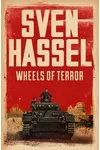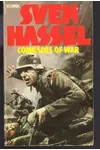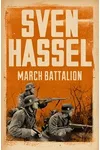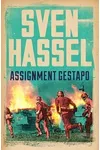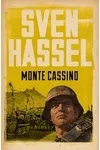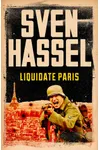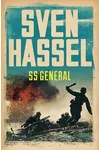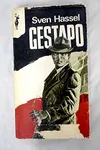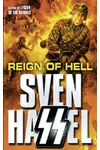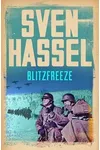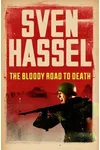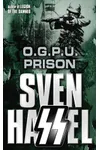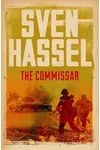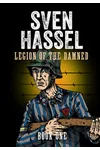Picture a Danish storyteller who turned the horrors of World War II into gripping, gritty novels—meet Sven Hassel! Born Børge Willy Redsted Pedersen in 1917, Hassel spun tales of war’s brutal reality with a raw, unfiltered voice that captivated millions. His controversial life and vivid storytelling made him one of Denmark’s most polarizing yet bestselling authors, rivaling even Hans Christian Andersen.
Despite facing imprisonment, illness, and a storm of debate over his wartime claims, Hassel’s novels offered a rare glimpse into the lives of ordinary German soldiers. Ready to dive into his world of tank battles, camaraderie, and anti-war grit? Let’s explore the man behind the pen name!
The Making of Sven Hassel
Born in Frederiksborg, Denmark, to a working-class family, Sven Hassel faced hardship early on. At 14, he joined the merchant navy, seeking adventure. By 19, after completing Denmark’s mandatory military service, he faced unemployment in a struggling economy. In 1937, he moved to Germany and joined the Wehrmacht, serving in tank units. His attempt to desert landed him in a penal battalion, a grueling experience that shaped his writing. After the war, he faced a 10-year prison sentence for treason in Denmark, where he began penning his first novel, Legion of the Damned.
Sven Hassel’s Unforgettable Stories
Hassel’s 14 novels, starting with Legion of the Damned in 1953, plunge readers into the chaos of World War II through the eyes of a misfit penal regiment. His debut follows a soldier’s harrowing journey through brutal battles and prison camps, blending raw violence with dark humor. Wheels of Terror (1958) vividly depicts the Eastern Front’s inferno, with tanks rumbling through a fire-bombed city. Monte Cassino (1963) captures the relentless Allied assault, while Liquidate Paris (1967) explores the war’s final, desperate days. His direct, cinematic style—short sentences, vivid action, and witty dialogue—makes every page pulse with intensity.
Hassel’s stories focus on a colorful cast, like the anti-authoritarian Joseph Porta and the hulking Tiny, who navigate war’s absurdity with gallows humor. While rooted in his experiences, Hassel admitted to weaving fiction into his tales, calling it his 'legitimate right to free fantasy.' Critics debate their historical accuracy, but fans love their unflinching portrayal of war’s toll on ordinary soldiers, not generals or heroes.
Why Sven Hassel Matters
With over 53 million books sold, translated into 25 languages, Hassel redefined war literature. His novels, especially popular in Britain, offered a ground-level view of German soldiers—flawed, human, and caught in a brutal machine. Unlike Allied war stories, his gritty perspective struck a chord, influencing how readers saw the 'enemy' in the 1950s and 60s. Though Denmark shunned him, labeling him a traitor, his global fanbase cherished his anti-war message and vivid storytelling.
Controversy swirled around Hassel’s wartime claims, with some alleging he exaggerated his service or collaborated with Nazis. Yet, his ability to craft compelling narratives from chaos cemented his legacy. His work inspired a 1987 film, The Misfit Brigade, and remains a touchstone for war fiction fans.
- Born: April 19, 1917, Frederiksborg, Denmark
- Key Works: Legion of the Damned, Wheels of Terror, Monte Cassino, Liquidate Paris
- Sold: Over 53 million books worldwide
- Died: September 21, 2012, Barcelona, Spain
Snag Legion of the Damned and dive into Sven Hassel’s raw, thrilling war stories—perfect for fans of grit and glory!
